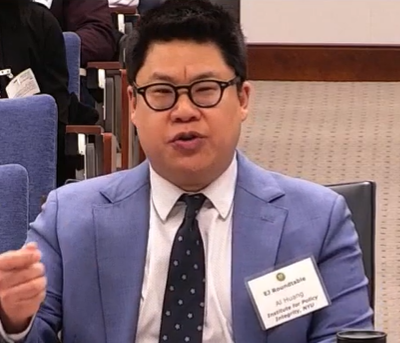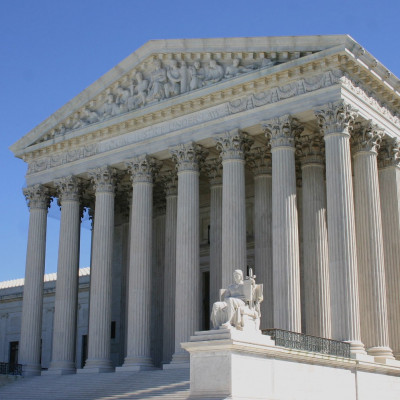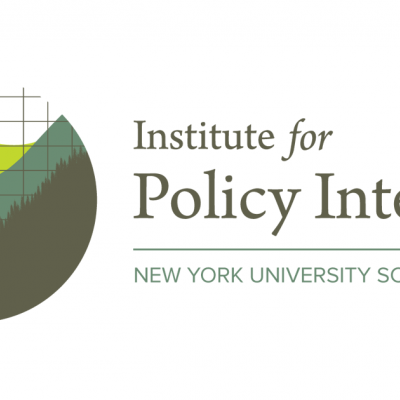March 31, 2023
March 2023 at Policy Integrity
- Webinar: Tribal Energy Transitions – Impacts, Opportunities, and Research Ethics
- Defending Clean Cars in Court
- Helping FERC Improve Environmental Justice Analysis
- Making Sense of the “Major Questions Doctrine”
- Improving Distributional Analysis
- Welcoming Our New State Policy Director
- In the News
-

Webinar: Tribal Energy Transitions – Impacts, Opportunities, and Research Ethics
Join us for a discussion of tribal energy transitions on April 26th at 12 pm Eastern Time. Panelists will share preliminary findings from their research and policy work, focusing on both the local economic impacts that energy transitions have on Indigenous tribes as well as the opportunities that energy transitions might create for these communities. Register here! This webinar is part of an ongoing series highlighting energy equity research funded by the Alfred P. Sloan Foundation. Stay tuned for upcoming events!
-

Defending Clean Cars in Court
After the Environmental Protection Agency strengthened greenhouse gas emissions standards for cars in 2021, a coalition of Republican Attorneys General and various fuel trade groups challenged the rule in the D.C. Circuit, claiming that EPA misapplied economic principles and violated the "major questions doctrine."
Policy Integrity recently filed an amicus brief refuting these claims and showing that the rule is consistent with sound economics and established practice. In particular, we explained that EPA appropriately valued the consumer fuel savings and climate damages that would result from the rule.
-

Helping FERC Improve Environmental Justice Analysis
The Federal Energy Regulatory Commission (FERC), the agency responsible for regulating interstate energy infrastructure and markets, is seeking to better incorporate environmental justice into its decisionmaking. Policy Integrity’s Environmental Justice Director, Al Huang, spoke at a March 29 FERC roundtable on these issues, providing suggestions on how the Commission can identify, avoid, and minimize adverse impacts on environmental justice communities. He emphasized the need for FERC to have a clear policy statement to improve and standardize the agency’s environmental justice impact analyses. Huang also underscored that environmental justice analyses must be able to affect the ultimate decision on project permitting.
-

Making Sense of the “Major Questions Doctrine”
Natasha Brunstein and Don Goodson’s article in the William and Mary Environmental Law and Policy Review on the framework for the “major questions doctrine” used in West Virginia v. EPA was among the top five most-downloaded recent administrative law papers and was selected for inclusion in the U.S. Administrative Law eJournal’s latest volume. In West Virginia, the Supreme Court expressly relied on the doctrine for the first time in a majority opinion to hold that a federal agency lacked authority to issue a regulation. Given the doctrine’s increased importance, the article explains the two-pronged framework used in the majority opinion, interpreting it as a guide for lower courts and litigants in applying the doctrine going forward. The paper also clarified what the major questions doctrine is not, rebutting arguments that the doctrine is triggered whenever an agency’s action raises a question of economic and political significance and that the doctrine operates as a clear-statement rule.
-

Improving Distributional Analysis
To meet its goal of incorporating equity in regulatory decisionmaking, the Biden administration must employ analytic techniques that effectively capture environmental and social inequalities. In a December paper in Ecology Law Quarterly, Burçin Ünel and Richard Revesz reviewed 15 significant proposed or final rules from agencies during the Biden administration to identify current practice and key limitations. A recent blog post by Max Sarinsky proposes some solutions for improving cost-benefit analysis to better capture environmental harm, such as lowering discount rates and using more granular models instead of relying on population-wide averages. Ünel presented her research at the Society of Benefit-Cost Analysis’s annual conference, and Sarinsky presented on the issue at the Florida International University’s annual environmental forum.
-

Welcoming Our New State Policy Director
This month, we welcomed Elizabeth Stein as our new State Policy Director. Formerly Lead Counsel of Energy Transition at the Environmental Defense Fund, Elizabeth has extensive experience advocating for aligning energy policies with state climate policies, with a particular focus on reducing reliance on oil and gas in the transportation and building sectors.
-

In the News
The Labor Department’s recent rule affirming fund managers’ ability to consider environmental, social, and governance factors when making investments has provoked backlash from conservative politicians. Yet, “The actual regulatory text here is a nothingburger. We’re fighting about a subtle vibe shift in preamble text,” Jack Lienke told Axios. “The bill attempting to undo this regulation "has to be the ne plus ultra of hysterical overreaction to any policy with the word climate in it,” he said.
